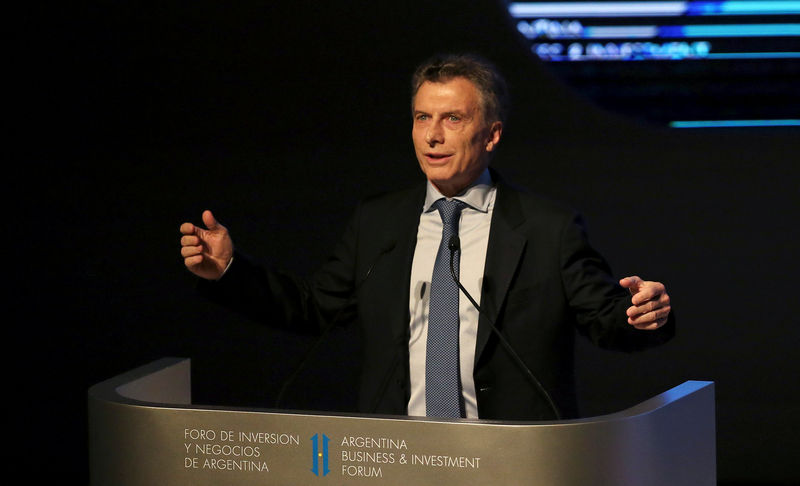By Caroline Stauffer and Nicolás Misculin
BUENOS AIRES (Reuters) - Executives applauded the opening of Argentina's economy at a major business forum in Buenos Aires this week but many said they are looking for improved infrastructure, more flexible labor laws and other reforms before committing investments.
President Mauricio Macri's government ended a decade-long debt dispute, curbed spending and lifted capital controls in its first ten months in power in an effort to attract investment needed to restore economic growth.
Macri's government says it has commitments for $30 billion in investments, including a pledge for $1 billion over four years from Coca-Cola Co made in January, though local consultancy Abeceb says at least $130 billion per year are needed.
BP CEO Bob Dudley called the government's forum, which attracted nearly 2,000 executives from dozens of countries, an initial step in building the confidence businesses would need to invest in Argentina.
"Two things are needed: one, scale, more rigs, more roads and infrastructure ... and two, labor flexibility," Dudley said in an interview, explaining both changes would bring down costs and in turn create more jobs and growth.
Argentina's oil sector, blessed with one of the world's largest shale reserves, faces one of the strongest unions in a country known for strict labor laws and workers' groups with significant political power.
Cesare Trevisani, vice president of Italy's Trevi Group, illustrated his concerns over labor issues with an example: one of the group's companies tried in 2012 to use a larger drill to improve efficiency, but workers resisted the change.
"This shows there is a cultural issue, to maintain the level of work without thinking of economic efficiency," said Trevisani.
Some progress was made this week in resolving the infrastructure issue, however, after the CEO of German conglomerate Siemens said the company would work to create energy and transportation projects worth up to 5 billion euros ($5.6 billion) in coming years.
Better infrastructure would also benefit the agriculture sector in the world's top exporter of soy oil and soy meal. Around 90 percent of Argentina's output is transported on trucks, a more expensive alternative than the trains and river barges used in competitors like the United States and Brazil.
"Until the farm gate, I think the Argentine producer is quite competitive. From the farm to the port, he is not as competitive," said Juan Luciano, CEO of U.S. grain trader Archer Daniels Midland Co.
Argentina's political reality lead some to question how politically feasible further reforms, especially the historically sensitive labor issue, really are. Macri's party does not have a majority in Congress and needs moderate members of the opposition Peronist movement to pass legislation.
While the government was trying to woo investors this week inside a luxurious convention center, blocks away thousands of small-scale agricultural producers gave out free vegetables in order to draw attention to price distortions and double-digit inflation they say crushes profits.
Some executives said they feared a political backlash to Macri's reform efforts, which are initially thought to have increased inflation and poverty, though the government expects both to fall soon.

“It’s all great to have free trade, it’s all great the notion let the best win, but it doesn’t do any good if by that you produce a lot of losers who then go out and attack the reforms,” said Joe Kaiser, CEO of Siemens.